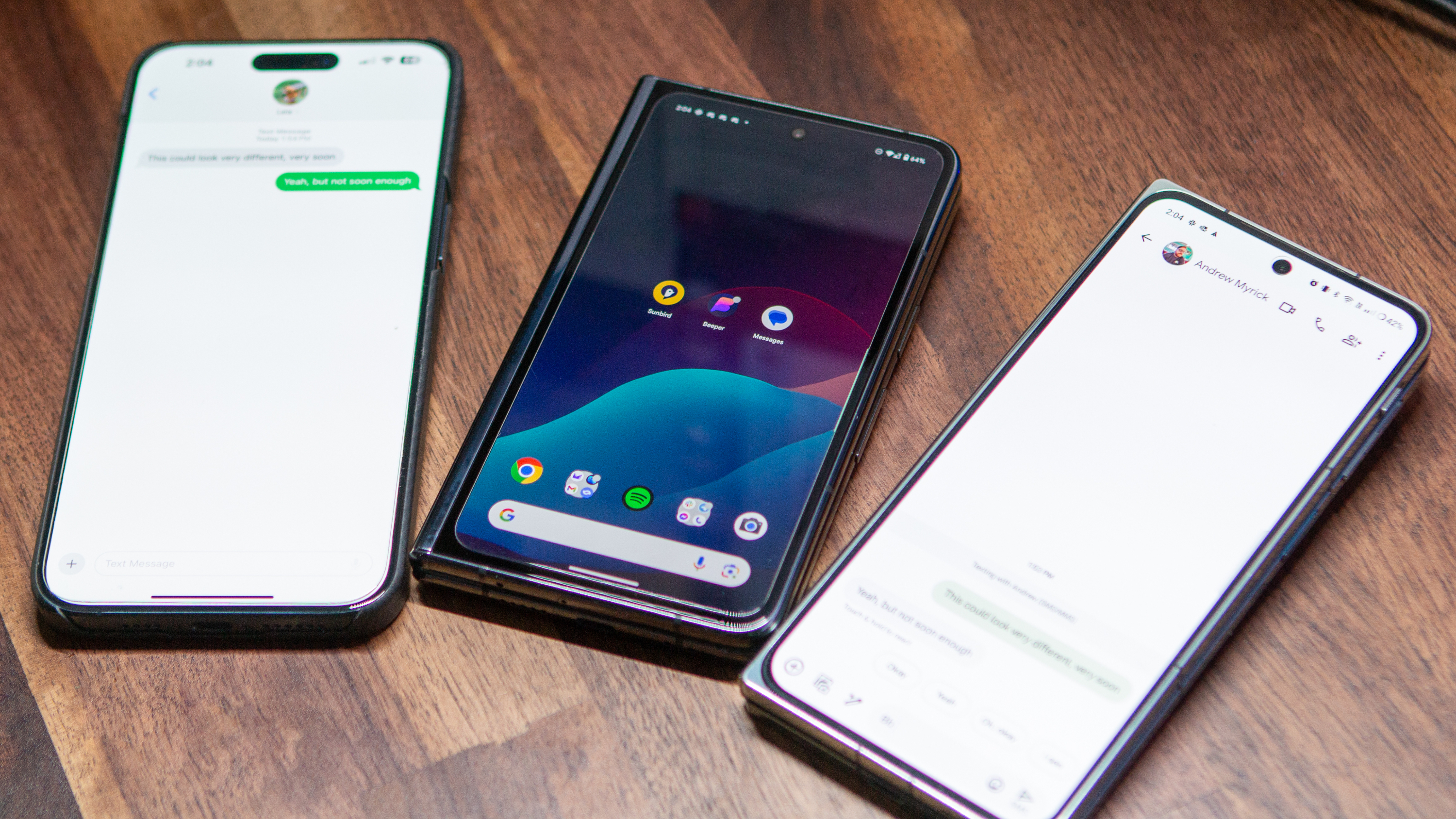Beeper Mini is up and running again, with a couple of key changes
The cat-and-mouse game has begun.

Get the latest news from Android Central, your trusted companion in the world of Android
You are now subscribed
Your newsletter sign-up was successful
What you need to know
- After Beeper Mini launched, Apple patched the "exploit" that was being used to send iMessage on Android.
- Over the weekend, the ability to use Beeper Cloud for iMessage was restored, and now Beeper Mini is working.
- Currently, you'll need to manually download and install the updated Beeper Mini APK, but the company has also halted subscriptions.
Just a couple of days after seeing a successful launch, Beeper Mini was sent to messaging purgatory after Apple managed to "patch" whatever flaw Beeper was utilizing. Shortly after the news hit, Apple responded to The Verge, stating that it "took steps to protect our users by blocking techniques that exploit fake credentials to gain access to iMessage."
Despite Apple confirming that it had actually stopped Beeper Mini from working, that didn't stop Beeper from working through the weekend to try and find a workaround. First, the ability to use iMessage via Beeper Cloud was repaired, and as of this morning, Beeper Mini is apparently back up and running.
In a blog post, Beeper cofounders Eric Migicovsky and Brad Murray share quite a few details about everything that's happened over the past few days. The post also includes a link to download and install the APK file for the latest version, as it's still going through "some final testing before submitting the update to the Google Play Store."
Even after the update is installed, there are a few key differences between this new version and the one that launched last week. Namely, to use iMessage on Beeper Mini, you'll need to sign in using an Apple ID. Currently, "phone number registration is not working yet," but the company is "currently working on a fix for this."
The second major change is that Beeper is now free to use, as "things have been a bit chaotic, and we're not comfortable subjecting paying users to this." This is the right move, as it seems that Beeper is preparing for the cat-and-mouse game with Apple to continue.
To remain as transparent as possible, the blog post goes on to explain "what happened" and respond to the statement Apple provided to The Verge. Beeper states that it "took steps to deregister all phone numbers associated with Beeper Mini, and we sent push notifications to all users updating them on the situation." Additionally, Beeper states that it has reached out but has "not heard anything directly from Apple."
The final section of the blog post claims that "Beeper Mini made communication between Android and iPhone users more secure." It also aims to provide a bit of reasoning behind why using traditional SMS messages is less secure and how Beeper Mini managed to "fix this problem."
Get the latest news from Android Central, your trusted companion in the world of Android
It's also noted that the "underlying connection method is open source, for anyone to review." That said, Beeper also promises to take "that dedication to security and privacy even further."
In doing so, the company is offering Apple a bit of an olive branch by offering "to share the entire Beeper Mini codebase with a mutually agreed upon 3rd party security research firm." Additionally, Beeper Mini "would consider adding a pager emoji 📟️ to metadata on all messages sent via Beeper Mini."
We can't help but feel as though the last one's a little "tongue-in-cheek." Especially considering Google's iPager video as part of the company's #GetTheMessage campaign. But given Apple's previous response to the Beeper Mini launch, we can't help but brace ourselves for an interesting cat-and-mouse situation, especially after Apple said it would "continue to make updates in the future to protect our users."

Andrew Myrick is a Senior Editor at Android Central. He enjoys everything to do with technology, including tablets, smartphones, and everything in between. Perhaps his favorite past-time is collecting different headphones, even if they all end up in the same drawer.
